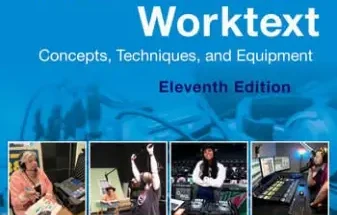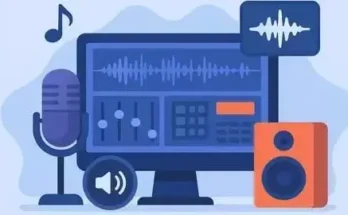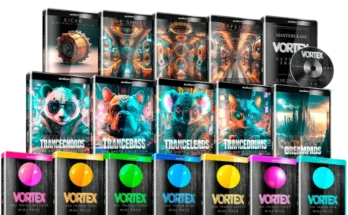P2P | 28 August 2020 | 2.9 GB
Throughout this course, producers Chris Octane and Liam O’Mullane invite you to join them in the studio, where you can observe their methods and advanced techniques for creating a serious Drum and Bass groove. Currently producing as part of newly formed outfit ‘colo[r]’, Chris and Liam bring together a veritable mountain of experience in electronic music production, DJing and sound design.
In this second instalment, the duo develop the groove they started in part 1, embellishing with extra samples and loops, which are edited and mixed in realtime. Foley is then added, recorded in an outdoors location near the studio, which is combined with a new chords sequence to form an atmospheric intro. Additional arrangement is then carried out, as well as vocal recording and processing, until the track starts to really take shape.
State of the art player technology helps students obtain information quickly and easily from each module, with cue points added to lessons for instant skipping to informative moments in each movie. In addition to the streamed movies, the Live project from the course is supplied as a download, along with over 100MB of DnB samples from Loopmasters. For more information, check out the course trailer and sample module, or listen to the track from the course below.
Module 1: Introduction
Chris Octane and Liam O’Mullane introduce you to their plan for the session with a brief discussion about where to start the track.
Module 2: Drums – Sound Design
colo:r start by working on the synthesised elements of the main drums. Skilfully manipulating various oscillators, they create powerful artificial snare and kick drums sounds. These electronic sounds will be combined with acoustically recorded duplicates in the following section, to create realistic and powerful beats.

Module 3: Drums – Acoustic Kits and Sequencing
In the second drums section, Chris and Liam map an acoustic kit to Push. They then combine this with the synth-drums, applying various processing including side-chain compression. Next, they set up a stereo image for the drums, including a novel technique that makes use of the HAAS effect. The combined processed synth and acoustic drums create a beat with tremendous depth.
Module 4: Sub Bass
colo[r] begin working on the bass by creating the super-low-frequency elements. Various processing is applied, including notch filters and an envelope follower working in tandem with EQ.
Module 5: Bass Design 1 Part 1
In this module, Chris and Liam begin work on the bass part. Using Analog, they synthesise the twisted bass sound that the genre is so well known for. They then manipulate the various controls to create the sound they want, before applying various effects including grain delay.
Module 6: Bass Design 1 Part 2
Continuing with the low end, Chris and Liam demonstrate how they use an iPad, mapped to an XY device in Ableton, to control multiple parameters from different plugins simultaneously. This enables automation to be written in a more performance-like manner, which is an integral part of their process for creating bass-lines.
Module 7: Slip Editing
In this section, you will see how colo:r use the arrangement view to perform slip editing, an extremely useful sampling-based technique.
Module 8: Bass Design 2 Part 1
colo:r return to the bass sound, to further refine it. After multiple automation passes and processing using parametric EQ and multiband compression, they show you how to freeze the sound and map it to the Push, before further manipulation of the sound using macro controls.
Module 9: Bass Design 2 Part 2
In this section, Liam and Chris use the step sequencer to create a bass-line. They make use of the touch sensitive fader on Push for automation passes and really begin to focus in on the DnB groove.
Module 10: More Drums, More Bass
This section is all about refinement. Additional parts are recorded, filters and other processing are applied and automation is used on the drums.
Module 11: Percussion
In the final section from this instalment, colo:r spice up the track by adding various percussion elements, including parts from Octane’s pack, which they set up to be played using Push. A variety of effects are used to add funky variations to the percussion, including auto-pan, automated EQ and auto-filters. This module then concludes with a summary by Chris and Liam.
[toggle title=”Home page”]https://tinyurl.com/y3luljyh[/toggle]

http://alfalink.to/012096f460cb6385452c
Please REPORT in Comment Broken Links




